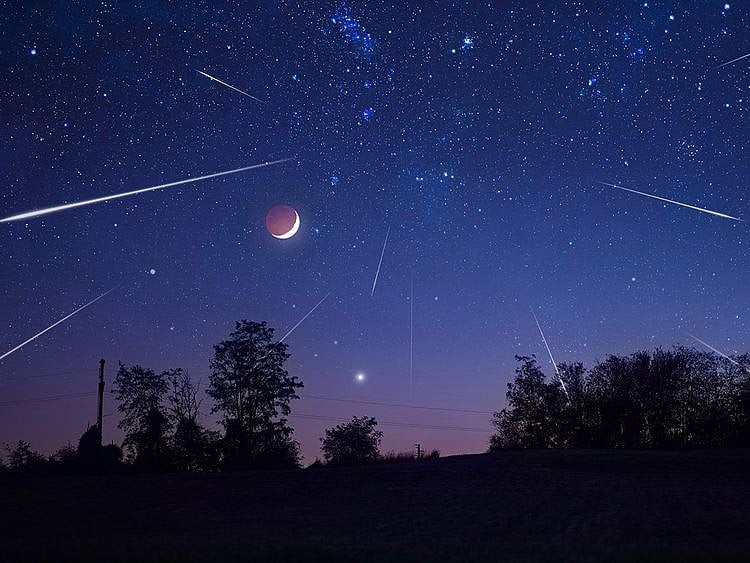Leonid meteor shower to light up UAE skies this week
Astronomers say low moonlight will offer ideal viewing conditions

Dubai: The UAE night sky will be illuminated this November by the annual Leonid meteor shower, which is expected to reach its peak between November 17 and 18, according to the Emirates Astronomical Society.
The Leonids are among the world’s most famous yearly meteor showers and occur when Earth passes through the debris trail of Comet Tempel–Tuttle. As the comet’s remnants enter Earth’s atmosphere, they burn brightly, producing fast-moving meteors often with long, glowing tails. Under dark skies, observers can typically expect between 10 and 20 meteors per hour.
Ibrahim Al Jarwan, Chairman of the Emirates Astronomical Society and member of the Arab Union for Astronomy and Space Science, told WAM that viewing conditions this year will be particularly favourable. During the peak nights, the Moon will be a waning crescent, meaning minimal moonlight and clearer visibility for meteor watchers.
He noted that roughly every 33 years — when the comet returns on its regular orbit—the Leonids can erupt into a full meteor storm, generating hundreds or even thousands of meteors per hour. The comet’s next return is expected in 2031, which may bring heightened Leonid activity between 2031 and 2033. The last time the comet reached perihelion was in 1998–1999, which produced powerful meteor storms in 1999, 2001 and 2002.
Al Jarwan added that the best time to observe the Leonids is from after midnight until dawn, looking towards the constellation Leo. In November, Leo rises in the eastern sky shortly after midnight, making the period between 2am and daybreak the most favourable viewing window — though meteors may appear in any part of the sky.
He advised stargazers to move away from city lights for the clearest views, ideally in calm weather and on nights with little or no moonlight, particularly during the first and last three nights of the lunar month.
Network Links
GN StoreDownload our app
© Al Nisr Publishing LLC 2026. All rights reserved.